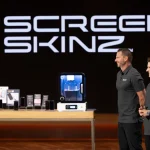
Not all that glitters is gold, and not all that bleeds in the Tank is worth a Shark deal. Not every Shark Tank success story ends with millions.
In the current era of excessive hyper-marketing, many businesses are all talk and no play when the consumer pushes come to shove.
Most businesses that appear on the show have humble origins with big dreams, but occasionally, you get a black sheep with not-so-noble intentions. Either that, or they lack the financial and business literacy to make it big.
Some businesses collapse because of avoidable costly mistakes like fraudulent claims, reckless spending, or fights between founders. These Shark Tank failures show how one wrong move can sink the entire deal, even with a Shark on board. In this article, you will find the mistakes that made Shark Tank businesses fail.
Costly Mistakes That Sank Shark Tank Businesses
The Shark Tank show could be a goldmine for entrepreneurs in terms of investment and guidance. Even the best opportunities can fall apart without a solid product, smart decisions, and strong leadership.
Here are a few costly mistakes that made Shark Tank businesses fail, though they had a promising idea. They left both founders and the investors empty-handed.
- Fraudulent claims: Breathometer misled investors and customers with a device that never delivered accurate results, turning a “life-saving” pitch into a fraudulent flop.
- Lack of human behavior understanding: ToyGaroo ignored the emotional bond kids have with toys, leaving parents unwilling to pay for a cold, subscription-style model.
- Counterproductive product in the name of ease: Body Jac tried to sell an easier push-up solution in a market where people value challenge and results, making the product ineffective.
- Lack of financial discipline: Mix Bikini burned through momentum and investor trust by partying away funds and losing $200,000 in sales after a preventable website crash.
- Internal conflicts: Sweet Ballz fell apart from within as its co-founders took each other to court, derailing growth just as the business took off.
When Shark Tank Deals Turn Into Disasters
Not every Shark Tank pitch turns into a success story. Some ideas dazzled the Sharks in the moment, only to fall apart soon after.
From a “life-saving” breathalyzer that never worked to a bikini brand that lost $200,000 in sales after a website crash, these Shark Tank business pitches show how costly mistakes can sink even the most promising businesses.
Breathometer
Breathometer was probably one of the most game-changing products to appear on Shark Tank, only to be a hoax and fraudulent.
Quick Facts
- Founder: Charles Michael Yim
- Product: A mini breathalyzer that pairs with your mobile
- Deal Status: Deal secured with Kevin O’Leary, Mark Cuban, Daymond John, Lori Greiner, and Robert Herjavec
- Investment Asked: $250,000 in exchange for 10% equity
- Deal Outcome: $1,000,000 for 30% equity
Breathometer is a small device attached to smartphones that measures blood alcohol levels just by blowing into it, turning any smartphone into a personal breathalyzer.
Several Sharks were impressed, and all five on that episode jumped in on the deal. But the excitement didn’t last. After some investigations, it was revealed that the device was wildly inaccurate and failed to deliver its core promise.
Breathometer was shut down, customers received refunds, and the business landed among the most notorious Shark Tank flops of all time.
ToyGaroo
When everything is shifting to a subscription-based model, why should kids and their toys be left behind, right?
ToyGaroo promised parents a cost-saving subscription service where kids could swap toys regularly instead of buying new ones.
Quick Facts
- Founder: Nikki Pope
- Product: Subscription-based rental toys
- Deal Status: Deal secured with Mark Cuban and Robert Herjavec
- Investment Asked: $100,000 for 10% equity
- Deal Outcome: $200,000 for 35% equity
Kids get bored with toys faster than parents can buy them. A subscription model sounds like a win-win situation for everyone since it promises a steady stream of new toys without the clutter piling up at home.
Parents save money and space, kids stay entertained, and the business gets recurring revenue. On paper, it feels like a win for everyone.
The problem was that toys aren’t like streaming movies or meal kits, and children form attachment to some of them (as they should). No parent wants to explain to their five-year-old that it’s time to part with their favorite toy now because the subscription has expired.
When combined with high subscription costs and poor-quality toys that did not justify the price, the idea quickly lost its charm.
The company filed for bankruptcy just one year after its Shark Tank appearance and eventually closed all operations in 2016.
Body Jac
Body Jac tried to enter the brutal market of gym equipment with the aim of making push-ups easier. But the founder the felt it is not really easier.
The main goal was to help people who struggled with exercise by reducing their strain. The problem was that push-ups are meant to be challenging, making the product counterproductive.
Quick Facts
- Founder: Jack Barrington
- Product: Push-up assistance equipment
- Deal Status: Deal secured with Kevin Harrington and Barbara Corcoran
- Investment Asked: $180,000 for 20% equity
- Deal Outcome: $180,000 for 50% equity
In a fitness market where people want results, selling a shortcut is always an uphill/losing battle. Body Jac’s deal on the show was contingent on whether the founder could lose 30 pounds of weight using it.
The product disappeared from the market. While the exact reason(s) were never known, Barbara Corcoran called the product her worst investment ever.
Mix Bikini
Mix Bikini is centered on giving women the freedom to design their own looks by combining different pieces of their bikinis.
Quick Facts
- Founders: Frank Scozzafava and Adam DiSilvestro
- Product: Reversible bikini wear
- Deal Status: Deal secured with Barbara Corcoran
- Investment Asked: $50,000 for 5% equity
- Deal Outcome: $50,000 for 10% equity
Each Mix Bikini suit comes with eight pieces that can be swapped around in endless ways.
Owning more than one set only opened up more combinations, and since every piece was reversible, it was easy to put together hundreds of different styles from a small collection.
They shook hands with Barbara as she offered $50,000 for 10% equity.
After scoring a deal on Shark Tank, Frank Scozzafava and Adam DiSilvestro marked the moment with an over-the-top party in New York City, where Barbara Corcoran also showed up.
The celebration didn’t last long, though. When their episode aired, the company’s website crashed and stayed down for more than a week, wiping out about $200,000 in potential sales.
With the business unable to recover, Barbara lost her investment, and she had to step away. This was one of the costliest and irresponsible blunders in Shark Tank history.
Sweet Ballz
A lot went upside down for a business that offered something as sweet as cake in the form of balls, Sweet Ballz. The founders impressed the Sharks with simple but delicious cake balls.
Quick Facts
- Founders: James McDonald and Cole Egger
- Product: Cake Balls
- Deal Status: Mark Cuban and Barbara Corcoran
- Investment Asked: $500,000 for 5% equity
- Deal Outcome: $250,000 for 25% equity
Founding duo James McDonald and Cole Egger shook hands on a deal with Mark Cuban and Barbara Corcoran. They secured the deal of $250,000 for 25% equity.
They were doing pretty well initially by making as much as $700,000 from just 7-11 franchise stores.
But the sweetness turned sour when the founders had a falling out, with McDonald suing Egger for breach of contract and stealing his idea to start his own business based on the Sweet Ballz model (allegedly).
The company has been on a rocky road since the internal legal battles, which have potentially harmed its growth and success in the grand scheme of things.
Shark Tank Lessons and What Not to Do After a Deal
Shark Tank can give entrepreneurs a once-in-a-lifetime shot, but these failure stories show how easy it is to throw it all away.
Whether overpromising on a product, ignoring customer needs, losing focus, making reckless decisions, or fighting with your partners, one wrong move can sink a business, even with the most promising deal.
The biggest lesson from the mistakes that made Shark Tank businesses fail is that winning over the Sharks is hard, but keeping your company alive is even harder.




















